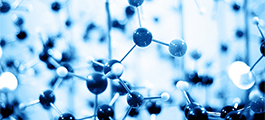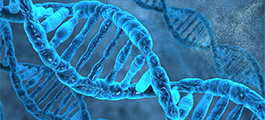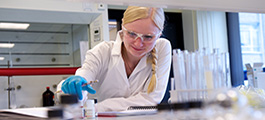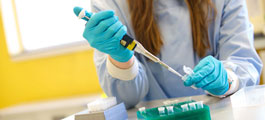Research in the sustainable synthesis and catalysis section encompasses a broad spectrum of interests from fundamental concepts in structural and mechanistic chemistry to the application of new chemical technologies in projects of commercial and technological relevance.
Staff and students within this section work across the inorganic/organic chemistry spectrum, with particular strengths in:
- Catalysis by organometallic complexes
- Chemistry of the main group elements, particularly when these give rise to synergistic effects
- Elucidation of reaction mechanisms using computational and experimental techniques
- Enabling technologies, such as flow chemistry, electrochemistry, and photochemistry
- Handling and characterisation of highly air- and moisture-sensitive species
- Non-contact analysis of chemical reactions and chemical processes
- The generation and use of free radicals in organic synthesis
We have expertise across chemistry disciplines including:
- Computational chemistry
- Green chemistry
- Electrochemical characterisation of molecular compounds
- Energy storage materials
- NMR spectroscopy
- Physical organic chemistry
- Radical chemistry
- Synthetic organic, organometallic, and inorganic chemistry
- X-ray crystallography
Current and recent collaborators include academic institutions in Canada, Germany, Spain, and the UK, as well as industry collaborations with companies including AstraZeneca, CatSci, Eli Lilly, GSK, Innospec, and Syngenta.
Colleagues in the section are open to collaborations in their areas of expertise, whether as academic collaborations or knowledge exchange projects. We can offer support with the application of chemistry techniques, including elemental analysis and X-ray crystallography, to industrial problems.
Industry colleagues who are looking to set up a knowledge exchange project are welcome to contact individual academics directly or can contact the Head of Section (Dr David Nelson) in the first instance.
| Staff members | Research interests |
|---|---|
| Dr Joshua Barham |
|
| Dr Alan R. Kennedy |
|
| Professor Robert E. Mulvey |
|
| Professor John A. Murphy |
|
| Dr David J. Nelson |
|
| Dr Charles T. O’Hara |
|
| Dr Marc Reid |
|
| Dr Stuart D. Robertson |
|
| Dr Catherine Weetman |
|




